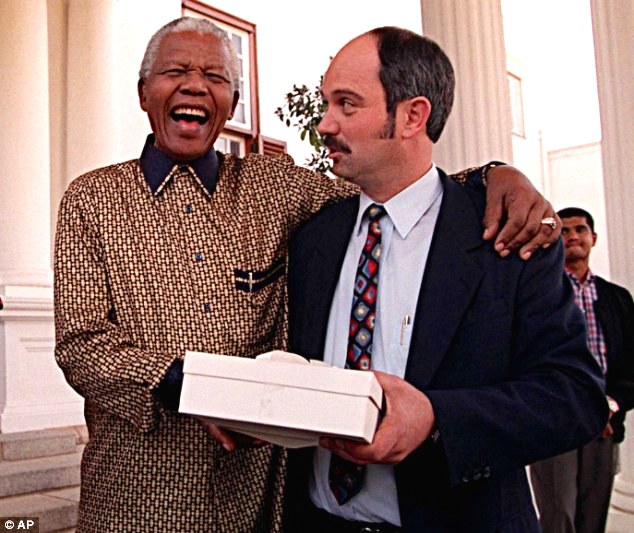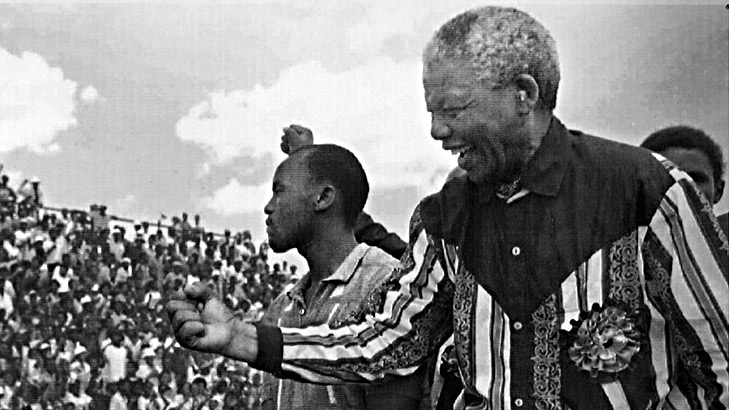Since 2009, the world has celebrated Nelson Mandela Day on the 18th of July, which is Madiba’s (Mandela’s clan name) birthday. This is supposed to be day to celebrate the legacy of a man hailed as a global symbol of reconciliation, who passed away on Dec 5, 2013. Ironically, it was a day many around the world mourn in sadness as 298 innocent lives were killed in the downed Flight MH17 and many more in the worsening aggression in Gaza.
The world today is in dire need of a great leader. Despite the unprecedented technological advancement we witness today, the world is still deeply divided and experiencing some of the most cruel conflicts, killings, and inhuman acts of extremism. As the saying goes, “Everything rises and falls on leadership”, the lack of leadership is undeniably a reason for what we see today. Therefore, if we want a better future for our next generation, more than anything else, we must revisit how we are nurturing the leaders of tomorrow.
Madiba is someone I deeply admire and respect. I see him not only as a champion for abolishing apartheid, but as a legend that united one of the most divided nations consumed by hatred and fear. I utilize his life story, values and principles in my training for youth leadership. I’d like to share why Madiba’s leadership philosophy is one of the best to be taught and the most relevant to our younger generation today.

Friends for life: Nelson Mandela bursts out laughing with Christo Brand, his former guard from Pollsmoor Prison who had dropped by his home for his birthday in 1998.
1. A leader who unites beyond boundaries
Our world is still divided by how people identify themselves based on their culture, colour, religion, ethnicity and even ideology. Today, identify-based conflict continues to disrupt our lives, causing fear and claiming the lives of many. Madiba, who once resented the white settlers in South Africa for their black oppression, went through a huge transformation during his 27 years of imprisonment. He developed a vision of co-prosperity and freedom for all and developed the dream to see his fellow human beings transcending colour and creed. His ‘hatred of oppression and not the white’ eventually won over the hearts of the white leaders and people. Madiba even risked losing the support of his people when he spoke up against the blacks who caused riots and violence.
It is sad to still see current leaders around the world who cling on to the support of their ‘own kind’ and fight the ‘different kind’ for fear of being subjugated to the extent that they are willing to ignore, hurt, or oppress others. Until the day the world is led by leaders who see every human being as valuable beyond any superficial identity finally comes, we are doomed to live in identity-based conflicts.
“No one is born hating another person because of the colour of his skin, or his background, or his religion. People must learn to hate, and if they can learn to hate, they can be taught to love, for love comes more naturally to the human heart than its opposite.” ~ Nelson Mandela
2. A leader who walked his talk
Madiba was a changed man when he was released from prison. He spoke about how the 27 years had allowed him to accomplish one of the most difficult tasks – changing himself. He would go on to practice and preach one of the most difficult things to do in the world – forgiving those who had oppressed him and put him in prison. He had no bitterness nor resent towards the whites. His mission was – and still is – clear, to create a nation in which everyone can enjoy the same freedom and opportunity.
The millennial generation today would not want to be led by leaders who don’t walk their talk. Madiba is the exemplary leader they can emulate.

Nelson Mandela’s address to a rally in Cape Town after his release from prison
3. A leader of humility and servant leadership
Madiba’s life is a ‘long walk for freedom’. He paid the heavy price of sacrificing his family life and spending the best part of his life in prison. Yet, after 27 years, he did not regret a thing and his convictions for democracy and freedom remained unchanged.
One of Madiba’s greatest qualities was that he was motivated by the greater good. Power, fame, and wealth could not tempt him. And after all the great things he did, he refused to take the credit for himself.
“I stand here before you not as a prophet but as a humble servant of you, the people. Your tireless and heroic sacrifices have made it possible for me to be here today. I therefore place the remaining years of my life in your hands.”
To conclude, humanity would have a brighter future if we could nurture more Mandelas who embody these qualities. And we can all be a ‘Mandela’ in our own way when we start to practice service and humility, living for the greater good and embracing humanity as one family under God.
By Teh Su Thye






